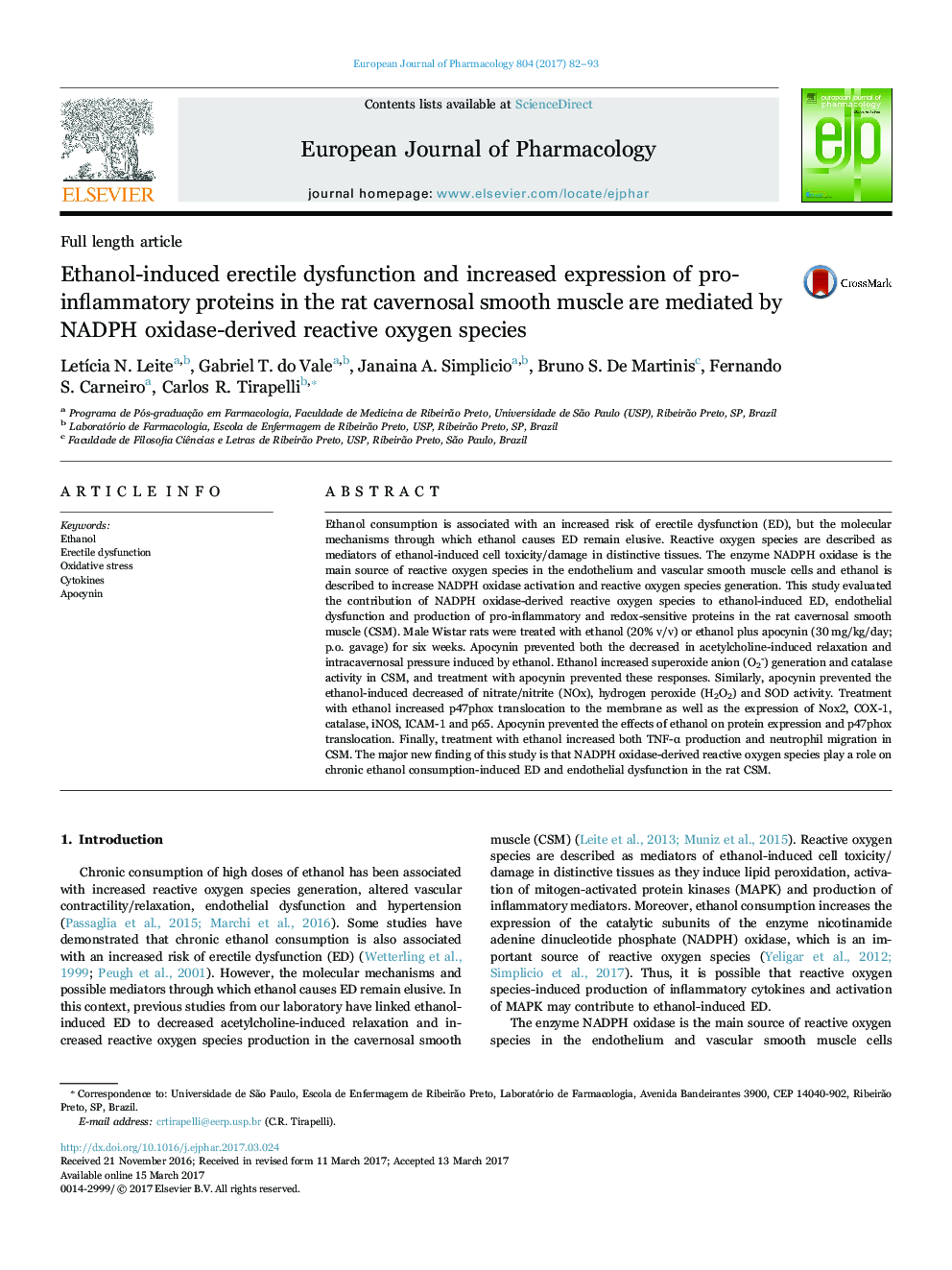| Article ID | Journal | Published Year | Pages | File Type |
|---|---|---|---|---|
| 5554630 | European Journal of Pharmacology | 2017 | 12 Pages |
Ethanol consumption is associated with an increased risk of erectile dysfunction (ED), but the molecular mechanisms through which ethanol causes ED remain elusive. Reactive oxygen species are described as mediators of ethanol-induced cell toxicity/damage in distinctive tissues. The enzyme NADPH oxidase is the main source of reactive oxygen species in the endothelium and vascular smooth muscle cells and ethanol is described to increase NADPH oxidase activation and reactive oxygen species generation. This study evaluated the contribution of NADPH oxidase-derived reactive oxygen species to ethanol-induced ED, endothelial dysfunction and production of pro-inflammatory and redox-sensitive proteins in the rat cavernosal smooth muscle (CSM). Male Wistar rats were treated with ethanol (20% v/v) or ethanol plus apocynin (30 mg/kg/day; p.o. gavage) for six weeks. Apocynin prevented both the decreased in acetylcholine-induced relaxation and intracavernosal pressure induced by ethanol. Ethanol increased superoxide anion (O2-) generation and catalase activity in CSM, and treatment with apocynin prevented these responses. Similarly, apocynin prevented the ethanol-induced decreased of nitrate/nitrite (NOx), hydrogen peroxide (H2O2) and SOD activity. Treatment with ethanol increased p47phox translocation to the membrane as well as the expression of Nox2, COX-1, catalase, iNOS, ICAM-1 and p65. Apocynin prevented the effects of ethanol on protein expression and p47phox translocation. Finally, treatment with ethanol increased both TNF-α production and neutrophil migration in CSM. The major new finding of this study is that NADPH oxidase-derived reactive oxygen species play a role on chronic ethanol consumption-induced ED and endothelial dysfunction in the rat CSM.
